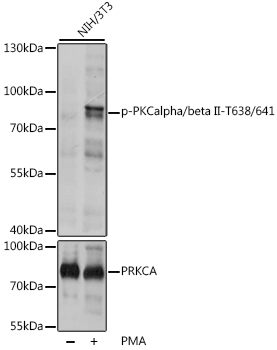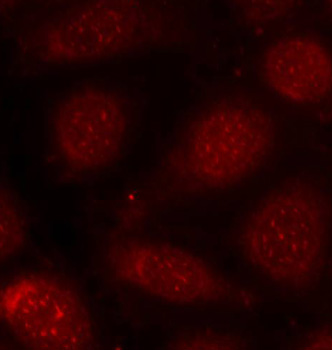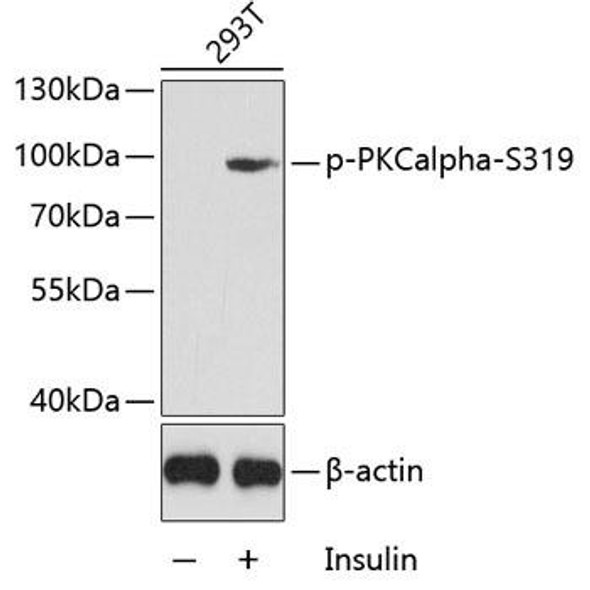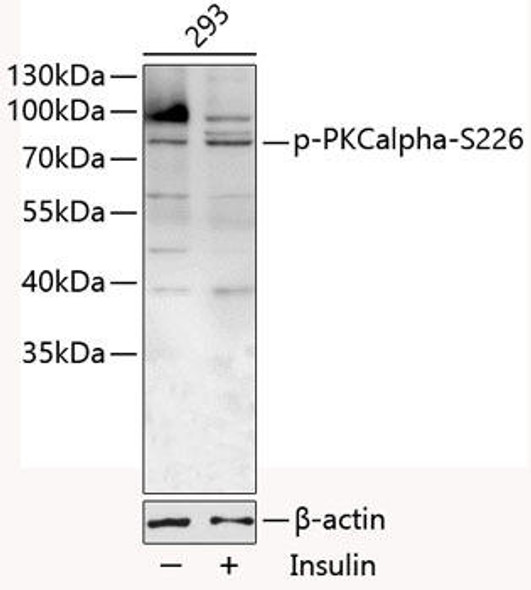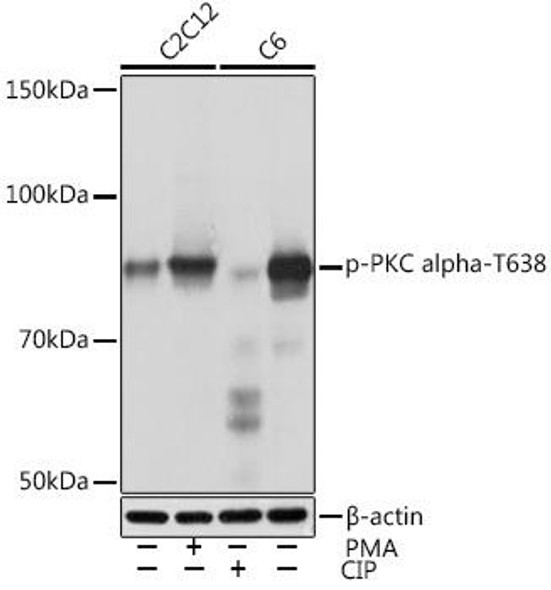Cell Biology Antibodies 16
Anti-Phospho-PKCalpha/beta II-T638/641 Antibody (CABP0191)
- SKU:
- CABP0191
- Product Type:
- Antibody
- Applications:
- WB
- Applications:
- IHC
- Applications:
- IF
- Reactivity:
- Human
- Reactivity:
- Mouse
- Reactivity:
- Rat
- Host Species:
- Rabbit
- Isotype:
- IgG
- Research Area:
- Cell Biology
Description
| Antibody Name: | Anti-Phospho-PKCalpha/beta II-T638/641 Antibody |
| Antibody SKU: | CABP0191 |
| Antibody Size: | 20uL, 50uL, 100uL |
| Application: | WB IHC IF |
| Reactivity: | Human, Mouse, Rat |
| Host Species: | Rabbit |
| Immunogen: | A phospho specific peptide corresponding to residues surrounding T641 of human PRKCB |
| Application: | WB IHC IF |
| Recommended Dilution: | WB 1:500 - 1:2000 IHC 1:50 - 1:100 IF 1:100 - 1:200 |
| Reactivity: | Human, Mouse, Rat |
| Positive Samples: | NIH/3T3 |
| Immunogen: | A phospho specific peptide corresponding to residues surrounding T641 of human PRKCB |
| Purification Method: | Affinity purification |
| Storage Buffer: | Store at -20°C. Avoid freeze / thaw cycles. Buffer: PBS with 0.02% sodium azide, 50% glycerol, pH7.3. |
| Isotype: | IgG |
| Sequence: | Email for sequence |
| Gene ID: | 5578/5579 |
| Uniprot: | P17252/P05771 |
| Cellular Location: | Cytoplasm, Membrane, Nucleus, Peripheral membrane protein |
| Calculated MW: | 76kDa/77kDa |
| Observed MW: | 80kDa |
| Synonyms: | PKC-beta, PKCB, PRKCB1, PRKCB2 |
| Background: | Protein kinase C (PKC) is a family of serine- and threonine-specific protein kinases that can be activated by calcium and second messenger diacylglycerol. PKC family members phosphorylate a wide variety of protein targets and are known to be involved in diverse cellular signaling pathways. PKC family members also serve as major receptors for phorbol esters, a class of tumor promoters. Each member of the PKC family has a specific expression profile and is believed to play a distinct role in cells. The protein encoded by this gene is one of the PKC family members. This protein kinase has been reported to be involved in many different cellular functions, such as B cell activation, apoptosis induction, endothelial cell proliferation, and intestinal sugar absorption. Studies in mice also suggest that this kinase may also regulate neuronal functions and correlate fear-induced conflict behavior after stress. Alternatively spliced transcript variants encoding distinct isoforms have been reported. |


